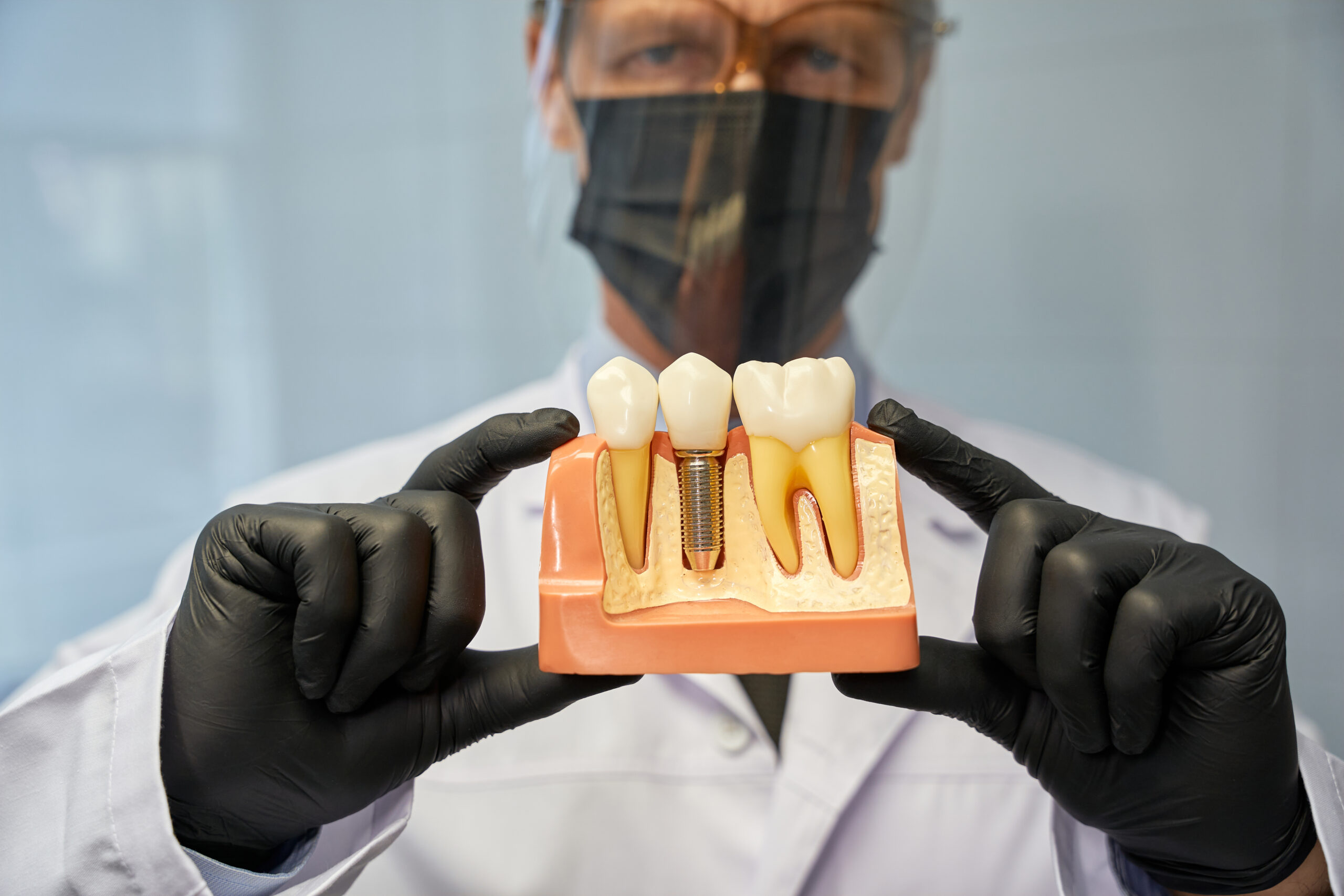
How Dental Implants Can Help Prevent Bone Loss in the Jaw?
August 12, 2024
Dental Implants
Losing a tooth can be more than just an aesthetic concern; it can trigger a series of changes in your oral health that affect your jawbone and overall well-being. When a tooth is missing, the bone that once supported it begins to deteriorate, leading to a range of potential issues including changes in facial structure and further tooth loss. Fortunately, dental implants offer a solution that not only restores your smile but also helps prevent these complications. By mimicking the natural tooth root, dental implants stimulate the jawbone and preserve its integrity. Curious about how this process works and why it’s so effective? Read on to discover how dental implants can safeguard your oral health and enhance your quality of life.
The Importance of Jawbone Health
The jawbone supports your teeth and affects your overall oral health. It plays a role in chewing, speaking, and maintaining facial structure. When you lose a tooth, the surrounding bone begins to deteriorate. This happens because the bone is not being stimulated by the forces of chewing. Over time, this can lead to a sunken appearance and further dental issues. Preserving jawbone health is essential for maintaining a full and healthy smile.
How Tooth Loss Causes Bone Loss
Tooth loss leads to bone loss because the jawbone is no longer stimulated. The process starts almost immediately after a tooth is lost. Without the pressure from the tooth root, the bone begins to shrink. This resorption can result in significant changes to the jawbone. The more teeth you lose, the more bone loss you experience. This can affect neighboring teeth and lead to additional tooth loss.
How Dental Implants Prevent Bone Loss
Dental implants are designed to mimic natural tooth roots. They are made of titanium, a material that integrates well with bone. When placed in the jawbone, implants provide stimulation similar to natural teeth. This stimulation helps maintain bone density and prevents resorption. The implant fuses with the bone in a process called osseointegration. This creates a stable base for a prosthetic tooth and preserves the bone structure.
Comparing Dental Implants to Other Tooth Replacements
Dentures and bridges are common tooth replacement options but do not prevent bone loss. Dentures rest on the gums and do not stimulate the jawbone. Over time, the lack of stimulation can lead to bone shrinkage. Bridges rely on adjacent teeth for support and also fail to address bone loss. Dental implants are unique in their ability to prevent bone deterioration by providing the necessary stimulation to the jawbone.
Long-Term Benefits of Preventing Bone Loss
Preventing bone loss with dental implants offers several long-term benefits. It helps maintain the alignment of remaining teeth and prevents shifting. This stability reduces the risk of further tooth loss and maintains bite alignment. Additionally, preserving the jawbone prevents the sunken appearance that can result from tooth loss. This not only improves your appearance but also boosts your self-confidence.
Dental Implants as a Permanent Solution
Dental implants provide a long-term solution for tooth loss. Unlike dentures, which may need adjustments or replacements, implants are designed to last a lifetime. The osseointegration process creates a strong bond between the implant and the jawbone. This bond ensures stability for the prosthetic tooth, which functions like a natural tooth. Implants are durable and reliable, offering a permanent solution to missing teeth.
Psychological Benefits of Dental Implants
Tooth loss and resulting bone loss can impact your psychological well-being. Many people feel self-conscious and anxious about their appearance. This can affect social interactions and overall quality of life. Dental implants can help restore both function and appearance. By preventing bone loss and maintaining facial structure, implants can improve self-confidence and enhance your quality of life.
What to Expect During the Implant Procedure
The dental implant procedure involves several steps. First, a thorough evaluation is conducted to assess bone health. If necessary, a bone graft may be performed to ensure adequate bone density. The implant is then surgically placed into the jawbone. After placement, a healing period is required for osseointegration. Finally, an abutment and prosthetic tooth are attached to complete the restoration.
Recovery and Aftercare
Recovery from dental implant surgery is usually straightforward. Most patients experience only mild discomfort, which can be managed with pain relievers. Swelling and bruising are common but typically subside within a few days. It is essential to follow aftercare instructions to ensure a smooth recovery. Maintaining good oral hygiene is crucial to the success of the implants. Regular brushing, flossing, and dental check-ups will help keep your implants in good condition.
Cost vs. Benefits
Dental implants may have a higher initial cost compared to other options. However, their long-term benefits make them a cost-effective choice. Dentures and bridges often require replacement or adjustments, adding to their overall cost. Dental implants, on the other hand, are a one-time investment. They prevent bone loss and reduce the need for future dental work, offering long-term savings and health benefits.
Investing in Your Oral Health
Choosing dental implants is a significant step in preserving your oral health. They provide a solution for missing teeth while preventing bone loss. By maintaining the structure of your jawbone, implants help protect remaining teeth and enhance your smile. If you’re considering dental implants, consult with a qualified professional to explore your options. In Matthews, you can find experienced dentists who specialize in this transformative procedure.
Dental implants are a valuable investment in your long-term oral health. They prevent jawbone loss, maintain facial structure, and improve overall dental function. For those in Matthews, exploring dental implants can provide a solution to tooth loss while preserving the integrity of your jawbone. This investment ensures a healthy and confident smile for years to come.
More Blog Posts

How Long Do Dental Crowns Last and What Affects Their Lifespan?

Correcting Tooth Gaps: Using Dental Veneers to Fix Diastema Without Braces in Matthews

Why Dr. Dawson Recommends Root Canal Over Extraction

Celebrating Dr. Ashley Dawson: Honored as One of America’s 40 Under 40 Top Dentists for 2025


